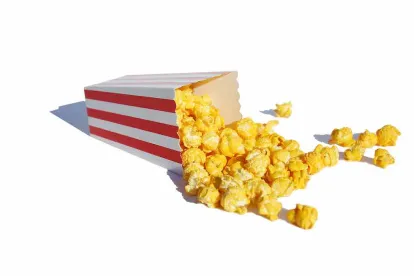The Ninth Circuit recently affirmed the dismissal of a putative class action alleging Diamond Foods engaged in unfair practices, created a nuisance, and breached the warranty of merchantability by including partially hydrogenated oils as an ingredient in Pop Secret popcorn. McGee v. S-L Snacks Nat’l, Case No. 17-55577 (9th Cir. December 4, 2020).
Plaintiff Jacquelyn McGee alleged Pop Secret contains partially hydrogenated oil, “a food additive banned in many parts of the world because it is the only dietary source of artificial trans fat,” which (according to McGee) “causes cardiovascular heart disease, diabetes, cancer and Alzheimer’s disease.” Plaintiff claimed she was injured by this in three ways: the amount of trans fat she consumed in Pop Secret (1) “caused her economic injury because she believed she was purchasing a safe product when she was not”; (2) “caused her physical injury by harming her heart and blood vessels”; and (3) substantially increased her “risk of heart disease, diabetes, cancer, and death.” Based on these allegations, Plaintiff’s Complaint asserted several claims including violations of California’s Unfair Competition Law, nuisance, and breach of the implied warranty of merchantability, and sought, among other things, restitution, disgorgement, and injunctive relief.
The district court granted Diamond Foods’s motion to dismiss for lack of standing because it found McGee alleged no economic injury when “she purchased a product that was less healthy than expected.” The district court concluded McGee’s theory of economic injury was untenable because “the existence of [artificial trans fat] in the . . . popcorn was included in the nutritional label on the product box and Plaintiff d[id] not allege that Defendant’s popcorn labels were misleading.” The district court also rejected McGee’s claims of present and future physical injury as “speculative” because there were no reasonable inferences to be drawn from the allegations in the complaint or the studies it cited to suggest McGee’s limited consumption of the popcorn substantially increased her risk of physical harm.
The Ninth Circuit affirmed. As to economic injury, the Court cautioned that a plaintiff “must do more than allege that she did not receive the benefit she thought she was obtaining.” Fatal to plaintiff’s claim, the court reiterated that Diamond Foods did not make any representations about Pop Secret’s safety, and “[a]lthough she may have assumed that Pop Secret contained only safe and healthy ingredients, her assumptions were not included in the bargain, particularly given the labeling disclosure that the product contained artificial trans fat.”
Importantly, McGee conceded that “Pop Secret’s nutritional label disclosed the presence of artificial trans fat, and the health risks of consuming artificial trans fat were firmly established by the time of McGee’s purchases.” Accordingly, the court concluded McGee did not allege that Pop Secret contained a hidden defect, or that it was worth less than she paid for it.
Finally, the Court found plaintiff failed to plausibly allege injury-in-fact sufficient to satisfy Article III standing. McGee alleged she suffered damage to vital organs and permanent degradation of cognitive abilities. The Court agreed such injuries would be sufficient for standing, if plausibly alleged. However, it found McGee’s allegations rested on the implausible contention that consuming a small amount of trans fat over the course of several years would invariably lead to those injuries. McGee did not allege she underwent medical testing or examination to confirm she suffered those injuries. And the studies she provided did not make that inference any more plausible. Though they showed some link between the consumption of trans fatty acids and systemic inflammation, they associated serious health risks only with significantly greater levels of consumption than plaintiff alleged.
This case serves as a reminder that a complaint alleging injury as a result of purported advertising misrepresentations must be grounded in the text of the advertising, not on a consumer’s unsupported assumptions. And hypothetical or farfetched injuries do not entitle a would-be plaintiff to a day in court (aside from maybe an oral argument or two on defendant’s motion to dismiss).




 />i
/>i

